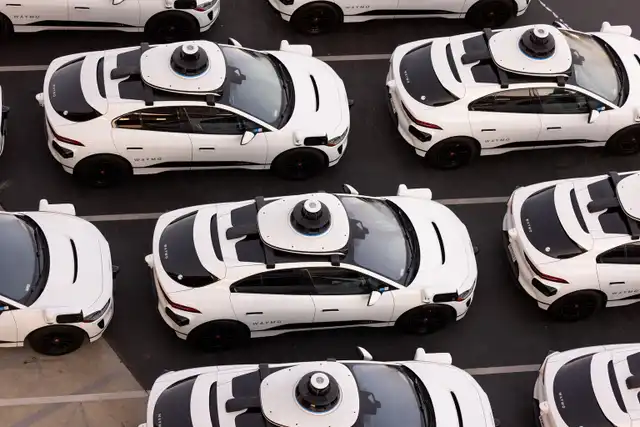Waymo, Alphabet’s autonomous vehicle subsidiary, has achieved a significant milestone by providing over 100,000 paid robotaxi rides per week across its three major markets—Los Angeles, San Francisco, and Phoenix. This figure, revealed by Waymo co-CEO Tekedra Mawakana, marks a significant leap from the 50,000 weekly rides previously reported in mid-2024. The service operates 24/7, covering all of San Francisco, with further expansion in Los Angeles and San Francisco’s Peninsula region, including Daly City. Waymo also began testing its fully autonomous vehicles on freeways, without human safety drivers.
Waymo’s fleet comprises fully electric Jaguar I-Pace vehicles equipped with its cutting-edge 5th- and 6th-generation sensor suites. The 6th-generation system is especially noteworthy, featuring 13 cameras, 4 lidar sensors, 6 radar units, and an array of external audio receivers (EARs). These upgrades extend the vehicles’ ability to detect obstacles up to 500 meters away, day and night, across a variety of weather conditions, all while optimizing costs and enhancing safety.
Waymo’s competitive edge lies in its complete control over both hardware and software development, allowing it to scale effectively in densely populated areas while maintaining a high standard of safety. This positions Waymo at the forefront of the autonomous vehicle race, competing against the likes of Tesla, Amazon’s Zoox, General Motors’ Cruise, and others.
While Waymo’s services are generating revenue, the company has yet to disclose specific financial figures. Its parent company Alphabet is expected to invest an additional $5 billion into Waymo’s expansion efforts over the coming years, as it faces rising operational costs. As Waymo continues its growth, particularly in California, it is also working on gaining access to pick-up and drop-off locations at San Francisco International Airport, though this process may be slow.
Waymo’s growth highlights the intensifying competition in the autonomous driving space. Tesla is set to host its own robotaxi event soon, while competitors like Baidu’s Apollo, Aurora, and Pony.ai are ramping up their efforts, positioning the sector for rapid advancements in the coming years.
Image Credit : JasonDoiy/iStock Unreleased via Getty Images





